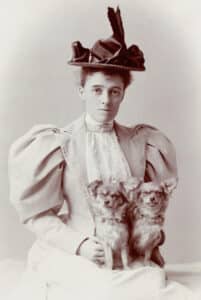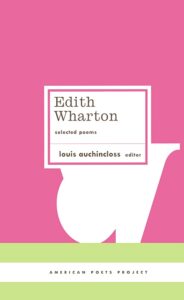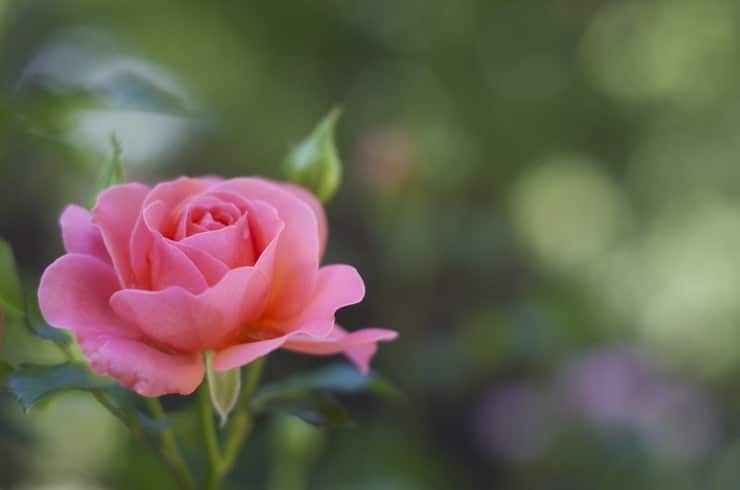Edith Wharton published three poetry collections, the first when she was 16
One of my favorite novels is Ethan Frome by Edith Wharton. I first read it when I was 16, for my high school English class my junior year. It wasn’t required reading; my final class term paper was on three novelists of the Realist period — Wharton, Willa Cather, and Jack London. I found myself walloped by Wharton’s novel; I went on to read The House of Mirth and Age of Innocence and discovered that Ethan Frome was the major exception to what she usually wrote.
Wharton (1862-1937) came from upper-class New York families on both sides. And it was the upper class that she usually wrote about. Ethan Frome is the story of a New England villager who experienced an accident, as his fellow residents of Starkfield, Massachusetts, will tell you. The story begins more than two decades after the “smashup”; only gradually do we learn what actually happened. A man whose life was filled with misery made a single dash for freedom and happiness, only to compound his misery with tragedy.
Ethan Frome is the best known and best remembered of Wharton’s novels and novellas. She also wrote numerous short stories and nonfiction works. And, to my surprise, she wrote poetry.

Edith Wharton
She was 16 when she published (at her parents’ expense) a private edition of her poems called Verses. Her second collection, Artemis to Actaeon and Other Verse, was published in 1909, when she was 41. Her final collection, Twelve Poems, came in 1926.
Edith Wharton: Selected Poems includes poetry from all three collections. The edition I read was edited by Louis Auchincloss (1917-2010) and published by Library of America. The poems were originally published in a wide variety of general and literary publications. Wharton also wrote a number of books about poets and poetry.
To read the poems is to walk into something of a time warp. Her poetry is formal and rhyming. The poems reflect her class, background, and travels in Europe. Like many well-to-do folks at the time, her family lived and traveled in Europe, and that’s where she was educated by a line of tutors and governesses. She wrote about the same things that many poets write about, including unrequited love, nature, and foreign places. She also translated poems from German, which tells you something about where she lived and what she was taught.
The poems published in her teenaged years are as well written as those of her adult years. They reflect her youth, of course, but they also portray her precision with words and how she was already turning herself into a poet and writer. This is one was published with Verses in 1878 and dated 1876.
Prophecies of Summer

Where the half-melted ice had left
A sunny corner, moist and warm,
For it to bud, beyond all harm.
The wet, brown sod,
Long horned with ice, had slowly grown
So soft, the tender seedling blown
By Autumn winds, in earliest Spring
Sent through the sun-warmed covering,
Its little leaf to God.
I found it there, beneath a ledge,
The dawning Spring time’s fairest pledge,
And to my mind it dimly brought
The sudden, joyous, leafy thought
Of Summer-time.
I plucked it from the sheltered cleft
Which the more kindly ice had left.
Within my hand to drop and die,
But for its sweet suggestions, I
Revive it in rhyme.
In her later collections, Wharton included longer poems, some of several pages, about Greek mythology, travels in Italy, aging, spending “the season” in Newport, and numerous other subjects. But it was those first poems, those of a teenaged girl, that impressed me the most. She was quite an accomplished writer at a young age, and her work still resonates more than a century later.
And it’s rather fun to discover that a writer whose fiction you enjoyed also wrote poetry.
Photo by Kris Camealy, Creative Commons, via Flickr. Post by Glynn Young.
How to Read a Poem uses images like the mouse, the hive, the switch (from the Billy Collins poem)—to guide readers into new ways of understanding poems. Anthology included.
“I require all our incoming poetry students—in the MFA I direct—to buy and read this book.”
—Jeanetta Calhoun Mish
- Poets and Poems: Katie Kalisz and “Flu Season” - April 15, 2025
- Poets and Poems: Michelle Ortega and “When You Ask Me, Why Paris?” - April 10, 2025
- Robert Waldron Imagines the Creation of “The Hound of Heaven” - April 8, 2025


L.L. Barkat says
The first time I read Ethan Frome was when I had to teach it! 🙂 (At a little orthodox Jewish school across the river from me.)
I did love the book, though I found it so, so sad. Wharton herself, as I understand it, felt trapped in her life. (How many people do, I wonder?)
Thanks for this deeper look at her literary undertakings. She was something of a landscape artist, too, as I recall, and wrote books on that, as well. Her mansion, and its grounds, in Massachusetts is beautiful.
Glynn says
Except for “Ethan Frome,” I’d always thought of Wharton as the chronicler of the upper class. But I found her poetry closer to “Ethan Frome” than her other books.
Sandra Heska King says
I don’t remember reading anything by Wharton. I found her, though, in an old American Lit book that’s on one of our book shelves. I’m going to have to live to 150 to catch up on everything I’ve missed or forgotten.